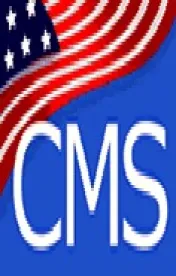The U.S. Centers for Medicare & Medicaid Services (CMS) recently released both a “ruling” and a proposed rule intended to address growing concern among hospitals about billing Medicare Part B following a medical necessity denial of a Medicare Part A hospital inpatient claim. Taken together, the ruling and proposed rule provide a seemingly temporary and partial concession to the hospital community, but fall short of hospital expectations. Significantly, with certain exceptions, hospitals may now (and for the foreseeable future) re-bill denied Part A claims as Medicare Inpatient Part B claims notwithstanding CMS’s historical position on timely filing requirements.
On March 13, 2013, the U.S. Centers for Medicare & Medicaid Services (CMS) released both a “ruling” (CMS-1455-R) and a proposed rule intended to address re-billing under Medicare Part B following a denial of a Medicare Part A hospital inpatient claim as not reasonable and necessary under section 1862(a)(1)(A) of the Social Security Act. The ruling is effective as of March 13, 2013, and will remain effective until final regulations pursuant to the proposed rule are adopted.
By way of background, as Congress and CMS have empowered more Medicare claims review contractors, including Medicare administrative contractors (MACs), recovery audit contractors (RACs) and comprehensive error rate testing contractors (collectively, auditors), to audit Medicare Part A hospital inpatient claims, the number of Part A inpatient claims denied as not reasonable and necessary has increased dramatically. Providers throughout the United States have and continue to challenge the auditors through the Medicare appeals processes up to the Medicare Appeals Council and administrative law judges (collectively, ALJs). ALJs have not always been consistent in how adjudicated denials should be addressed. “In an increasing number of cases,” ALJs have ordered payment for the services as if they were rendered at an outpatient or “observation level” of care, i.e., allowing hospitals payment for all Part B inpatient services that would have been payable had the Medicare beneficiary been treated as an outpatient. However, some ALJs have supported CMS’s position in refusing to pay hospitals under Medicare Part B for the care that was provided, citing timely filing requirements (CMS’s denial position). CMS provided that “numerous operational difficulties” have been created from these inconsistencies. As a result, the ruling establishes a standard process for effectuating these decisions and handling pending claims and appeals while CMS “considers how to best address this issue going forward.” CMS provided that it is “adopting (although not endorsing)” the decisions of the ALJs.
In December 2012, the American Hospital Association (AHA) and a number of hospitals filed a lawsuit against the Secretary of Health and Human Services asking the U.S. District Court for the District of Columbia to find CMS’s denial position to be an unlawful and unfair government practice. As of the date of this On The Subject, the AHA takes the position that the ruling and proposed rule do not relieve the hospitals’ concerns, and therefore the trade group will continue to litigate the matter.
The Ruling
The ruling applies to Part A inpatient claims that are denied by auditors because the inpatient admissions are not reasonable and necessary under section 1862(a)(1)(A) of the Social Security Act—i.e., other denial reasons are not subject to this ruling. In the case of such denials, the hospital may submit a Part B inpatient claim for payment for Part B services. Notably, the policy encompasses a broader range of services than the current re-billing policy set forth in the Medicare Benefit Policy Manual. The hospital may submit a Part B inpatient claim for payment for the Part B services that would have been payable to the hospital had the beneficiary originally been treated as an outpatient rather than admitted as an inpatient. However, CMS has excluded from the re-billing opportunity Part B services that specifically require an outpatient status, including, for example, outpatient visits, emergency department visits and observation services. Physical therapy services, speech-language pathology services and occupational therapy services are also excluded from this new re-billing policy, even though hospitals could previously re-bill these services pursuant to the policy set forth in the Medicare Benefit Policy Manual.
Where no Part A payment is made because the Part A inpatient claim is denied on the basis that the inpatient admission was not reasonable and necessary, hospitals may continue to bill separately for the outpatient services furnished during the three-day (or one-day for non-inpatient prospective payment system hospitals) payment window prior to the inpatient admission, including observation and other services that were furnished in accordance with Medicare’s requirements. CMS explains that in order to prevent duplicate billing and payment, a hospital may not have simultaneous requests for payment under both Parts A and B for the same services provided to a single beneficiary on the same dates of service. Accordingly, a hospital must choose whether to withdraw any pending Part A appeal rights or to pursue an appeal of the Part A claim and likely forego the opportunity to re-bill under Part B.
With respect to beneficiaries and Part B claims billed under this ruling, CMS provides that the beneficiary’s patient status remains inpatient as of the time of inpatient admission and is not changed to outpatient, because the beneficiary was formally admitted as an inpatient and there is no provision to change a beneficiary’s status after she or he is discharged from the hospital. The beneficiary is considered an outpatient for services billed on the Part B outpatient claim and is considered an inpatient for services billed on the Part B inpatient claim.
CMS’s ruling is limited in several key respects, leaving a number of legal, policy and implementation questions open for hospitals, auditors and CMS. Notably:
- This ruling only applies to denials that are made (1) while this ruling is in effect; (2) prior to the effective date of this ruling, but for which the timeframe to file an appeal has not expired; or (3) prior to the effective date of this ruling, but for which an appeal is pending. Therefore, this ruling does not “make whole” many of those hospitals that chose not to incur the cost of challenging CMS’s denial position, or challenging CMS’s denial position to the full extent, e.g., hospitals that only pursued their appeals to the ALJ level and received a negative ALJ decision. These issues may be addressed as part of the pending AHA litigation.
- This ruling does not apply to inpatient admissions deemed by the hospital not to be reasonable and necessary (for example, through utilization review or other self-audit). Therefore, this ruling does not address how hospitals and MACs should handle voluntary refunds as a result of internal compliance reviews. While CMS did not provide a clear path for hospitals that choose to police themselves and return only those monies that they are not entitled to, there are compelling policy reasons for CMS to work with auditors, hospitals and their trade groups to provide the right incentives and pathways so as to make these compliance efforts most efficient for hospitals, MACs and CMS, and to ensure that Medicare trust funds are most efficiently returned. Otherwise, hospitals could be incentivized to audit their claims and inundate the MACs with requests for prompt denials so as to benefit from the ruling.
In issuing the ruling, CMS also abruptly announced that it will terminate a related Part A to Part B Re-Billing Demonstration Project for hospitals that began January 1, 2012, and was initially slated for three years, from CY 2012 through CY 2014. CMS did not provide a reason for the termination of the demonstration project.
Finally, the ruling provides that if a hospital with a “pending appeal” for a Part A claim denial subject to this ruling withdraws its appeal, it will have 180 days from the date of receipt of the dismissal notice to file its Part B claim(s). In addition, if a hospital with a “pending appeal” for a Part A claim denial subject to this ruling does not withdraw its appeal, the hospital has 180 days from the date of receipt of the final or binding unfavorable appeal decision (or subsequent dismissal notice) to submit its Part B claim(s). The ruling also appears to provide hospitals with 180 days from the date of receipt of the denial from a Medicare review contractor to file their Part B claim(s).
The Proposed Rule
As noted above, alongside the ruling, CMS issued a proposed rule titled “Medicare Program: Part B Inpatient Billing in Hospitals.” CMS proposes to adopt a regulation that would provide for the payment of Part B outpatient services in the event of a Medicare Part A inpatient claim denial on the basis that the services were not reasonable and necessary. This proposed regulation would apply to Part A claims denied by auditors as well as claims that a hospital’s utilization review committee determined did not meet medical necessity criteria for the inpatient stay.
Contrary to the ruling, claims would need to be filed within the one-year CMS timely filing requirements. In other words, under the proposed rule, CMS does not provide hospitals with the opportunity to file Part B claims within 180 days of the denial or final decision. CMS noted that the proposed rule would “result in approximately $4.8 billion decrease in Medicare program expenditures over 5 years.” Comments are due by May 18, 2013.
In light of the ruling and the potential short window of opportunity, hospitals may wish to assess their RAC appeals strategy so as to resolve appropriately and efficiently their appeals and disputes, and work to evaluate their strategic options for minimizing their potential overpayment risk within the framework of their compliance programs and internal audit priorities.




 />i
/>i

